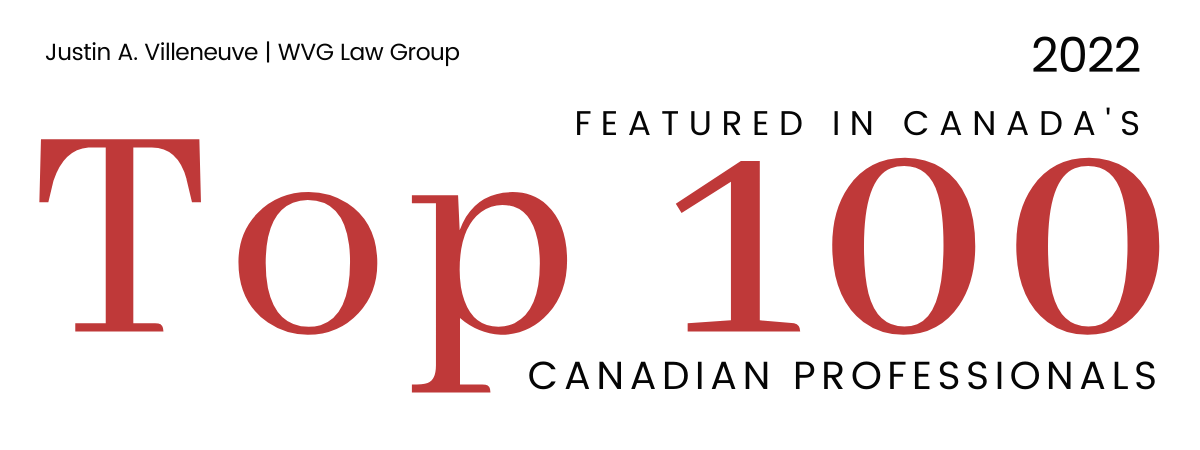Let's talk about your case
You can schedule a call with one of our lawyers anytime. Call today and get the help you need.
Or fill out our online form, and we will respond within 24 hrs.
Expert Guide to Tort Lawyers in Ontario | WVGB Law Group
Ontario Tort Lawyer Services - What to Expect

Key Highlights
- Tort law in Ontario allows individuals to seek compensation for injuries and damages caused by another party's negligence or wrongful acts.
- Tort lawyers play a crucial role in providing legal advice, representing clients in tort litigation, and helping them navigate the complex legal system.
- Types of tort claims in Ontario include personal injury claims, property damage claims, and defamation cases.
- Hiring an experienced tort lawyer is important to achieve favorable outcomes and ensure fair compensation.
- The process of filing a tort claim involves an initial consultation, gathering evidence, filing the claim, and potentially going through settlements or trials.
- Frequently asked questions about tort claims in Ontario include the most common type of tort claim, the timeline of the process, the need for legal representation, and the costs involved in hiring a tort lawyer.
Introduction
Sustaining injuries and dealing with the subsequent pain and suffering can be one of the most challenging situations individuals face in their lifetime. In Ontario, the legal system provides a way for individuals to seek compensation for injuries and damages caused by another party's negligence or wrongful acts through tort law. Tort lawyers play a crucial role in helping individuals navigate the complex legal system and ensuring they receive fair compensation for their losses.
Tort law is a branch of civil law that deals with legal disputes arising from wrongful acts or omissions that cause harm to another person. It operates on the principle that individuals have a duty to exercise reasonable care to avoid causing harm to others. When someone fails to meet this duty of care and causes injury or damage to another person, they can be held legally responsible and may be required to compensate the injured party.
In Ontario, tort law is based on common law principles that have been developed through court decisions over time. It is important to understand the basics of tort law in Ontario to protect your rights and seek justice if you have been a victim of negligence or wrongful acts.
Defining Tort Law in Ontario
Tort law in Ontario is a branch of civil law that provides a legal framework for individuals to seek compensation for injuries and damages caused by another party's negligence or wrongful acts. It is based on common law principles, which means that it has evolved through court decisions rather than being codified in legislation.
In tort law, a tort is a wrongful act or omission that causes harm to another person. The person who commits the tort is called a tortfeasor. Tort law allows individuals who have been injured or suffered damages due to the tortfeasor's actions or omissions to seek compensation for their losses.
An omission refers to a failure to act when there is a legal duty to do so. For example, if a property owner fails to repair a broken step on their premises and someone slips and falls as a result, the property owner can be held liable under tort law for the injuries caused by their omission to act.
Tort law in Ontario covers a wide range of situations, including personal injury claims, property damage claims, and defamation cases. It provides a legal framework for individuals to seek justice and obtain compensation for their losses when they have been harmed by someone else's negligence or wrongful acts.
The Basics of Tort Law
At the heart of tort law is the concept of negligence. Negligence refers to the failure to exercise reasonable care, resulting in harm or injury to another person. When someone acts negligently, they are considered to have committed a tort.
Tortum, derived from the Latin word "tortum," means "a wrong or injustice." In tort law, a tort refers to the act or omission that causes harm or injury to another person. It encompasses a wide range of wrongful acts, including negligence, carelessness, and intentional wrongdoing.
To establish a successful tort claim, the injured party must prove that the tortfeasor owed a duty of care, breached that duty of care, and that the breach of duty caused the injuries or damages suffered. This requires gathering evidence to demonstrate the negligence or wrongful acts of the tortfeasor and the resulting harm or injury.
In a tort claim, the injured party may seek compensation for both general damages, such as pain and suffering, and specific damages, such as medical expenses, loss of income, and property damage. The amount of compensation awarded in a tort claim varies depending on the severity of the injuries and the impact on the injured party's life.
Tort law in Ontario plays a crucial role in ensuring that individuals who have been harmed by another person's negligence or wrongful acts can seek justice and obtain fair compensation for their losses. It provides a legal framework for holding tortfeasors accountable and promoting the principles of justice and fairness.
How Tort Law Differs from Criminal Law
While tort law and criminal law both deal with legal disputes involving harm or injury, there are significant differences between the two. Tort law focuses on providing compensation to victims of negligence or wrongful acts, while criminal law aims to punish individuals who have committed crimes.
In criminal law, the government brings charges against the accused, and if found guilty, they may face penalties such as imprisonment or fines. Criminal cases are prosecuted by the government, and the burden of proof is higher, requiring proof beyond a reasonable doubt.
In contrast, tort law involves civil cases where individuals seek compensation for damages they have suffered due to another person's negligence or wrongful acts. The burden of proof is lower in tort law, requiring proof on a balance of probabilities, meaning it is more likely than not that the defendant is responsible for the harm or injury.
While a tortfeasor may face both civil liability and criminal charges for the same act, the purpose of a tort claim is to obtain compensation for the victim rather than punishing the wrongdoer. It is important to consult with a tort lawyer to understand the differences between tort law and criminal law and determine the appropriate legal action to take in your specific situation.
Responsibilities of Tort Lawyers
Tort lawyers play an essential role in helping individuals navigate the complex legal system and seek justice and compensation for injuries and damages caused by another party's negligence or wrongful acts. They provide valuable legal advice, represent clients in tort litigation, and advocate for their clients' rights and interests.
Tort lawyers have a deep understanding of tort law and its intricacies. They work closely with their clients to gather evidence, build strong cases, and negotiate settlements or represent them in court. Their expertise and experience ensure that their clients receive fair compensation for their losses and achieve favorable outcomes in their tort claims.
Tort lawyers provide vital legal representation and advice to individuals seeking compensation for injuries and damages caused by another party's negligence or wrongful acts. They play a significant role in guiding their clients through the complex tort law process and ensuring their rights are protected. Here are some specific tasks that a tort lawyer performs:
- Provides legal advice and guidance throughout the tort claim process
- Represents clients in negotiations with insurance companies and other parties involved in the claim
- Assists in gathering evidence to support the claim, such as medical records, accident reports, and witness statements
- Pursues compensation for economic losses, including medical expenses, lost wages, and property damage
- Seeks fair compensation for pain and suffering and other non-economic damages
- Offers peace of mind by handling all legal aspects of the claim, allowing clients to focus on their recovery and well-being.
Types of Tort Claims
Tort claims in Ontario cover a wide range of situations where individuals have suffered injuries or damages due to another party's negligence or wrongful acts. Here are some of the types of tort claims that are commonly handled in Ontario:
- Personal injury claims: These involve injuries caused by accidents, such as car accidents, slip and falls, and medical malpractice.
- Property damage claims: These involve damages to property caused by someone else's negligence or intentional acts, such as vandalism or defective products.
- Defamation cases: These involve false statements made about a person that harm their reputation, such as libel or slander.
Each type of tort claim has its unique aspects and requires specific legal expertise to navigate. Consulting with an experienced tort lawyer is crucial to understanding the legal process and pursuing compensation for the specific type of tort claim you have.
Personal Injury Claims

Personal injury claims are one of the most common types of tort claims in Ontario. These claims arise when an individual has suffered injuries due to another party's negligence or wrongful acts. Here are some key points to know about personal injury claims:
- Personal injury claims often result from car accidents, slip and falls, medical malpractice, or other accidents caused by someone else's negligence.
- The injured party, known as the plaintiff, can seek compensation from the at-fault party's insurance company or directly from the at-fault party.
- Compensation may cover medical expenses, lost wages, pain and suffering, and other damages resulting from the injury.
- Personal injury claims require gathering evidence to establish liability, such as accident reports, medical records, and witness statements.
Consulting with a personal injury lawyer is crucial to navigate the legal process, negotiate with insurance companies, and seek fair compensation for the injuries suffered.
Property Damage Claims
Property damage claims involve seeking compensation for damages to property caused by another party's negligence or intentional acts. Here are some important points about property damage claims:
- Property damage claims can arise from various situations, such as vandalism, defective products, or accidents causing damage to property.
- The injured party can seek compensation from the responsible party for the cost of repairing or replacing the damaged property.
- Evidence of the damage, such as photographs, repair estimates, and witness statements, is crucial in establishing liability and determining the extent of the damages.
- Consulting with a tort lawyer is important to understand the legal process, assess the strength of the claim, and seek fair compensation for the property damage suffered.
- The responsible party may be held liable for the actual cost of repairing or replacing the damaged property, as well as any additional damages caused by the incident.
Defamation Cases
Defamation cases involve seeking compensation for harm to one's reputation caused by false statements made by another party. Here are some key points about defamation cases:
- Defamation refers to false statements that harm a person's reputation, such as libel (written defamation) or slander (spoken defamation).
- The injured party, known as the plaintiff, can seek compensation for the harm caused to their reputation and any resulting damages.
- Defamation cases require proving that the statements were false, that they were communicated to others, and that they caused harm to the plaintiff's reputation.
- Consulting with a tort lawyer is crucial to understand the legal elements of defamation, assess the strength of the claim, and seek fair compensation for the harm suffered.
- Many tort lawyers offer free consultations to discuss the details of defamation claims and provide guidance on the legal options available.
The Importance of Hiring an Experienced Tort Lawyer
Hiring an experienced tort lawyer is crucial when seeking compensation for injuries and damages caused by another party's negligence or wrongful acts. Here are some reasons why it is important to hire an experienced tort lawyer:
- Expertise: An experienced tort lawyer has in-depth knowledge of tort law and the legal process, ensuring that your rights are protected and pursued effectively.
- Negotiation skills: An experienced tort lawyer knows how to negotiate with insurance companies and other parties to seek fair compensation for your injuries and damages.
- Proven track record: An experienced tort lawyer has a track record of success in handling tort claims, increasing the chances of achieving a favorable outcome in your case.
- Fair compensation: An experienced tort lawyer will fight for fair compensation for your losses, ensuring that you are not taken advantage of by insurance companies or other parties.
Achieving Favorable Outcomes
Achieving favorable outcomes in tort cases is essential to ensuring that the injured party receives fair compensation for their losses. Here are some important points about achieving favorable outcomes in tort cases:
- Favorable outcomes in tort cases can be achieved through negotiation or through court decisions.
- Negotiation involves working with the defendant's insurance company or legal representatives to reach a fair settlement.
- Court decisions may be necessary if a settlement cannot be reached. In court, the judge or jury determines liability and the amount of compensation to be awarded.
- An experienced tort lawyer will present a strong case, using evidence and legal arguments to support your claim and advocate for fair compensation.
- Achieving a favorable outcome is crucial to obtaining the compensation you deserve your injuries and damages.
Navigating Complex Legal Systems
Navigating complex legal systems is a challenging task in tort cases. Here are some important points to consider when navigating the complex legal systems in tort cases:
- The legal process in tort cases can be complex and intimidating, requiring knowledge of legal procedures, rules of evidence, and case law.
- Determining the specific damages suffered, such as medical expenses, lost wages, and property damage, requires a thorough understanding of tort law and its application.
- General damages, such as pain and suffering, require careful assessment and presentation to ensure fair compensation.
- An experienced tort lawyer understands the complexities of the legal system and can navigate it effectively on your behalf.
- By working with an experienced tort lawyer, you can ensure that your rights are protected, and you receive the compensation you deserve for your injuries and damages.
Frequently Asked Questions
What is the most common type of tort claim in Ontario?
The most common type of tort claim in Ontario is the personal injury claim. This includes injuries caused by car accidents, slip and falls, and work accidents, among others.
How long does a tort claim process usually take?
The timeline for a tort claim process can vary depending on the complexity of the case. It can take several months to a few years to reach a resolution, either through a settlement or a trial.
What are the costs involved in hiring a tort lawyer in Ontario?
The costs of hiring a tort lawyer in Ontario may vary depending on the complexity of the case and the lawyer's fee structure. Many tort lawyers work on a contingency basis, meaning they only get paid if they win the case and obtain compensation for the client.
Let's talk about your case
You can schedule a call with one of our lawyers anytime. Call today and get the help you need.
Or fill out our online form, and we will respond within 24 hrs.
Thank you for contacting us.
We will get back to you as soon as possible. You can also book using this link: Personal Injury Booking Page
Please try again later
Related Blog Posts
Practice Areas
QUICK LINKS
CONTACT US
Tel: (613) 505- 5025
Fax: (613) 234-5852
info@wvgblaw.com
200-2571 Carling Avenue
Ottawa, Ontario
K2B 7H7
SERVICES
RECENT BLOG POSTS














